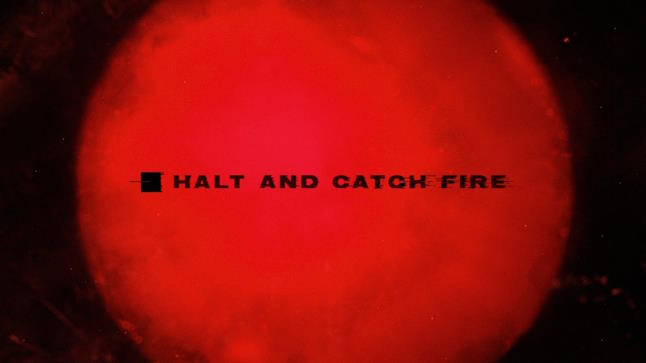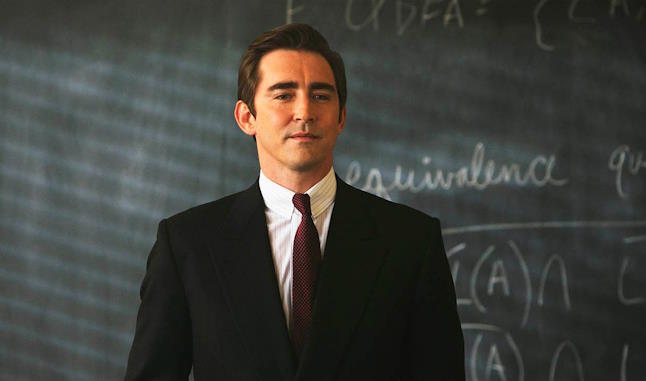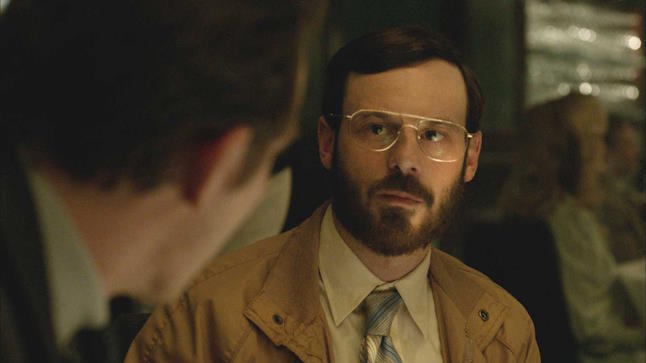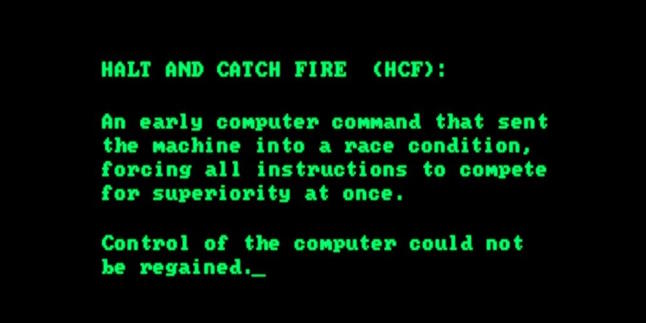Season 1 Episode 1

Reader,
I cannot know if this is your first time watching HACF or, like myself, a repeat viewing. I cannot know this, yet I need this writing to be accessible to both audiences so this is the contract I will have with you: I will not reveal major plot points, but I will touch on general themes that persist throughout the entire show. For example, I will say right now that this is a show about characters. It might seem at first glance that it's about bringing technology to market and prospering in the dawn of new human age-- but it's not. It's about interesting people who happened to live in interesting times while being involved in interesting things. Right away the writers, speaking through Joe, tell us this: "It's not the thing: it's the thing that gets us to the thing." This show is about people-- and these people, who we will come to love and hate and love again, evolve over the series. It should be no spoiler that the characters we will soon meet (again or for the first time) will be completely different at the end this journey. It should not be a spoiler because that is why you watch this show.
In episode one we meet our five main characters. What is stunning on repeat viewing is how plainly the writers introduce the character's themes that persist the entire series. This alludes to one of two possible realities: the writers either knew where they wanted to go with this entire series in advance of writing the first script, or the first pass at the characters was incredibly prescient and set the writers with a deep well to pull from. Either way, the central themes that define the characters are boldly present immediately.

"Let me start by asking a question."
Joe is introduced to us through a not entirely subtle metaphor: a symbol of East Coast wealth plowing over a symbol of Texas-- in front of the Texas capital. It's not big news to say that Joe will be a major force in the series and that the theme we see in the first episode, Joe committing unwilling others to his plans, is repeated a few times. However, what makes Joe more than just a shallow vehicle for introducing conflict is that Joe turns out, through his chaos, to be the catalyst for the other characters to self-actualize. In one of my favorite scenes of the entire series, Joe, at a ritzy sales lunch with his depressed sales-engineer Gordon and some sales prospects, lays out the show's call to action: "You've made just enough safe choices to stay alive, but not enough to matter. Is that what you want? You can be more-- you want to be more, don't you? The window of opportunity is closing, this is your chance." One of the customers, upon receiving the monologue quips "Are we still talking about systems software?" But we know he's not. In an interesting trick of writing and direction, Joe is talking to both the sales prospect and Gordon in a screen writing double entendre; planting a seed in Gordon's character that Joe will nurture for his own motivations while also introducing us to Joe's over-the-top visionary marketing style. Again, the Joe we meet here is instantly recognizable to repeat viewers as a well-formed character that we will see throughout the entire show.

"You can be more-- you want to be more, don't you?"
Rewinding a bit, Gordon is introduced to us at what is likely the lowest point in his life: an engineer fresh from the trauma of professional failure, now trapped by the constraints of supporting a nuclear family in middle-class suburbia, paired with a wife who bristles at the mere mention of pursuing any aspirations of building a computer. "Seventy-nine was great, but then eighty rolled around and it was like -- woah, what happened?" Gordon, at this point in his life, is clearly resigned to believing that he has missed his shot and his dreams are unobtainable. But enter Joe. Joe sees Gordon not for who he is, but who he can be: a builder. Most of the episode is Joe re-awakening the drive that makes Gordon special, convincing the man sleep walking through life that he has a second chance. "Good! Get angry!" Joe shouts. A slovenly Gordon fumbling his donut in the parking lot far from his assigned space of A-16 that Joe stole is contrasted only a few scenes later with the wide-awake Gordon who is now wearing cool sunglasses and proudly showing off an IBM computer in the trunk of his car that is parked in the spot he stole back. Joe smiles widely, having succeeded at rescuing Gordon from his depression. However, Joe (in true Joe fashion) doesn't just involve Gordon in his plans to build a new computer but irrevocably commits Gordon to these new plans. This is the first example of how Joe will send people around him through a crucible.
The remaining three characters (Donna, Cameron and Boz) will get my writing attention in the next episode as their characters further develop.
Before we wrap up, a few criticisms of the episode.
There seems to be a trope in TV pilots to include a scene of either graphic violence or graphic sex-- even if the show will consistently have neither. This pilot is no different and includes a sex scene that is out of character with the style of the rest of the show. All future sex scenes simply allude to the act rather than awkwardly loom over it like a creepy voyeur. What's interesting is that myself, and all the viewing party that is rewatching this series , reported being turned off by this scene and it causing them to nearly drop out of the show when they first saw it.
The other criticism is the name of the show itself. I occasionally recommend this series to others but always feel dumb recommending 'Halt and Catch Fire'. It tells you nothing about the show-- I'm surprised it got past the marketing department and it probably significantly contributed to the lack of viewership the show deservers. The name's reference is so obscure it necessitated an explanation at the opening-- and both the name and explanation, to this day, still leaves me clueless as to how it applies to the story. Nearly any name would have been a better choice: Silicon Prarie, Texas Tech, IP Theft Made Easy.
Despite the criticisms, I still like to say that this episode is a good example of the show and one of my favorite episodes.

The explanation explains nothing.
Notes: If you want a great article on the making and thought behind the intro sequence, check out this link to Art of the Title .